Kingdoms of Amalur: Reckoning
The lord of the dead ringers.
The tug of war between real-time action and RPG is evident here, as the inventory tries to offer the best of both worlds - allowing you to quickly swap stuff around if you're not bothered with customisation, or to delve deeper to reap hidden benefits if you like micromanaging your equipment and behaviour.
Customisation is also possible when you reach towns, where you will be able to buy and sell stuff but also spend time crafting. Alchemy and blacksmithing are available, but today we see sagecrafting, where you socket gems you've collected onto different weapons to add particular effects, like a flame speciality to a favoured longsword.
Amalur also encourages you to explore, but as with combat this manifests itself as more options rather than more obligations, with rewards for doing so rather than punishments for not. For example, as you wander around the world you may spot a deer-path leading into some trees - if you follow it, you could discover some loot, a side quest or in this case a new enemy to fight.
Enemies have been bussed in from all over the fantasy RPG spectrum, with giant trolls, kobolds, sea serpent things, little goblin guys and plenty of spiny, spindly, bipedal nasties to encounter and dismember. The developers are fond of the slow-and stop-motion attack chains that emphasise spears through heads or swords through guts, too, so expect some grisly finishers.
"The developers note that if you're invited to save the world then it should feel like it's worth saving."
With a lot of combat apparently about managing the space around you as much as picking your attacks, the camera has to be on the ball, and this has been an area of focus for the devs, who say that it is always intelligently framing up the most obvious aggressors that you might want to target rather than expecting you to do it yourself (although you can do that, too).
Those kinds of guiding hands are a common theme of the GDC presentation. We're also told to expect lots of subtle visual signposting, like making sure that the two kobolds outside a dungeon are of representative difficulty for what lies beyond the entrance. That way, if you are going to bite off more than you can chew by entering, you do at least know what you're getting yourself into.
Amalur is split into five huge regions - the usual bleak Lord of the Rings stuff, of course, but also the lush, verdant fields and sparkling forests of Albion. The developers note that if you're invited to save the world then it should feel like it's worth saving, which ought to come as music to the ears of anyone who finds the Fallout games depressing places to spend a lot of time. (Not that I'm saying they are but, you know, "bleak".)
The scale is very Lord of the Rings or World of Warcraft, too, with huge statues abounds, giant ruined buildings that ooze with untold back-story (told by NPCs nearby in some cases, obviously), and a feeling of old-world certainty and depth. Amalur is a huge, thousands-of-years-old place, and apparently we're supposed to understand that without feeling dwarfed and insignificant.
While the game isn't a life simulation, it is host to lots of obvious touches that make it feel alive, like a lovely day-and-night cycle which we see once through - from the warm, summer brightness of midday through the cooler midnight hours into the sparkling morning and back again.
The real question though, in the absence of much story detail or particulars on how characters grow and interact, is how Reckoning differentiates itself from the likes of Dragon Age, Two Worlds, The Witcher and so forth - or even whether it can be sensibly compared to any of them directly.
It's something we hope to learn the answer to next time we see it. In the meantime, Kingdoms of Amalur: Reckoning offers a strikingly rich template for a solid RPG, but one that is rather lacking in personality and detail at the moment. Then again, as a game about being reborn without fate, perhaps it's fitting that a lot is still to be determined.



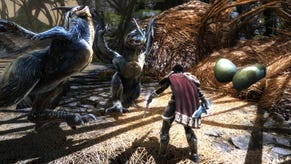
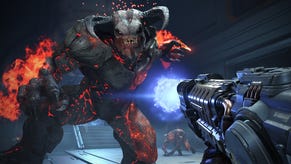
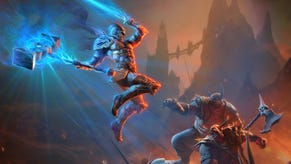
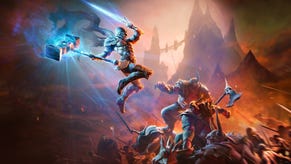
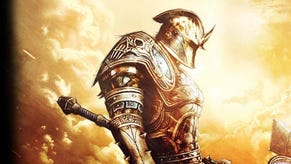




.png?width=291&height=164&fit=crop&quality=80&format=jpg&auto=webp)



